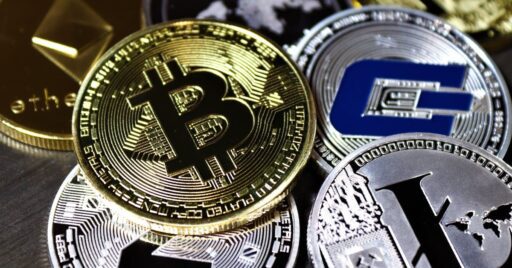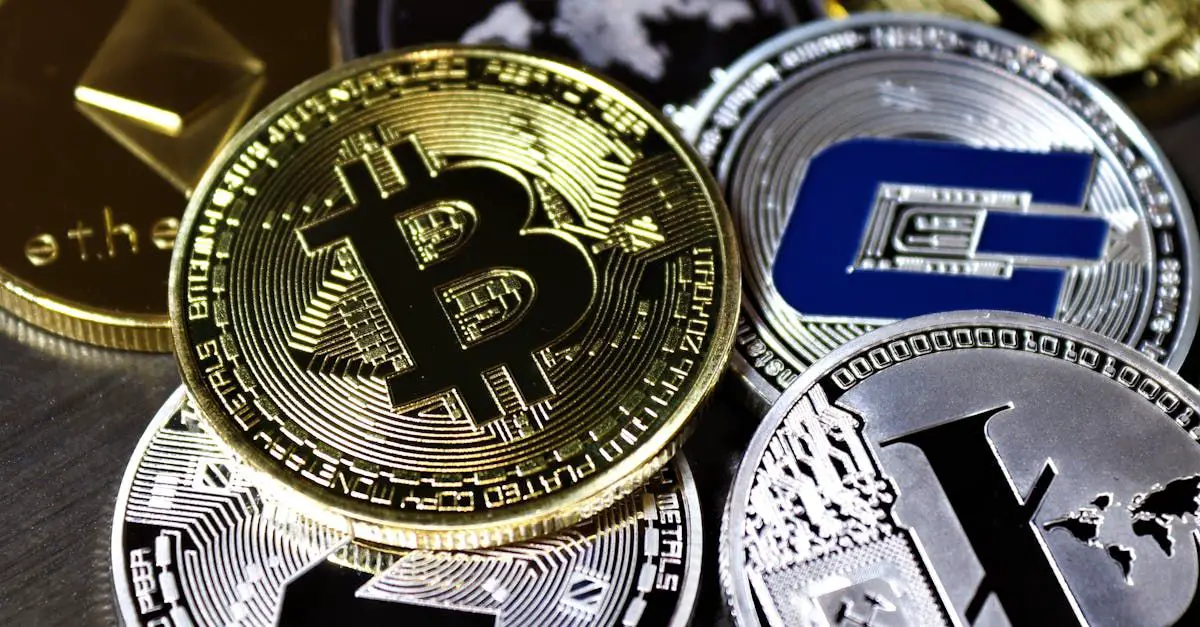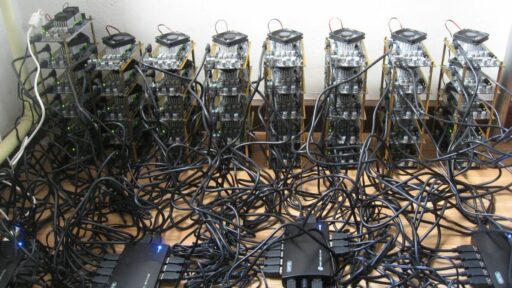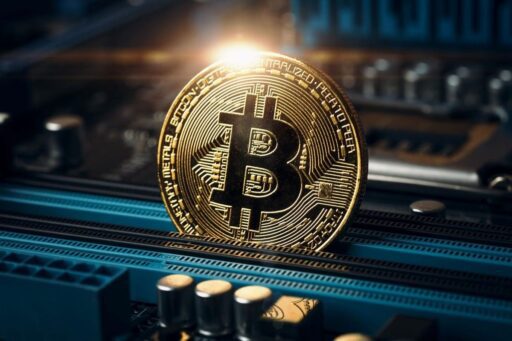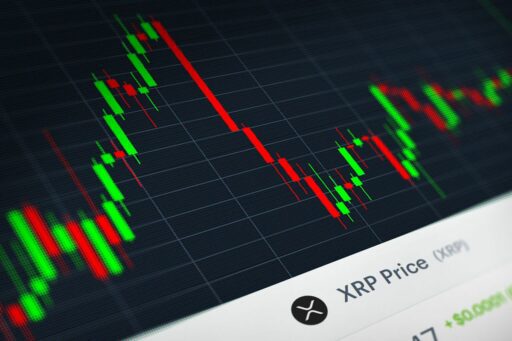The digital currency ecosystem is constantly evolving, with a myriad of crypto exchanges offering varied services, features, and levels of security. This comprehensive list of crypto exchanges aims to guide users through the complexities of choosing the right platform for their digital asset trading needs in 2024. We will explore the essential aspects of crypto exchanges, delve into detailed reviews, and consider the unique landscape of Chinese crypto exchange access, all while keeping an eye on the future trends and innovations that may shape the market.
Key Takeaways
- Crypto exchanges are diverse in services and features, with top exchanges like Binance, Kraken, and Coinbase leading the market.
- User experience, security, and customer support are paramount when evaluating the best crypto exchanges.
- The legality and accessibility of crypto exchanges in China present unique challenges and opportunities for residents.
- Regulatory compliance and asset security are critical considerations for users, with decentralized exchanges playing a significant role.
- Emerging trends and technological innovations are likely to continue transforming the crypto exchange landscape in the future.
Understanding the Crypto Exchange Ecosystem

Key Features of Top Crypto Exchanges
When exploring top crypto exchanges, it’s crucial to consider a variety of features that cater to both general and specific needs. A balanced approach is key, ensuring that the platform you choose not only adheres to high-security standards but also aligns with your individual trading preferences.
- Security: Top-tier security measures are non-negotiable.
- Coin Variety: While some traders prioritize a wide selection of cryptocurrencies, others may not.
- Fees: Competitive fee structures are a significant consideration.
- Additional Services: Look for exchanges offering extra features like NFT marketplaces or lending products.
It’s essential to recognize that the best exchange for one may not be the best for another. Personal requirements should drive the selection process.
Selecting the right exchange also involves understanding the regulatory environment and how it impacts the services offered. With the US market exerting considerable influence and emerging trends shaping the landscape, staying informed is paramount.
Security Measures and Trustworthiness
In the dynamic realm of digital currencies, security measures and trustworthiness are the cornerstones of a reliable crypto exchange. Standard safety features such as two-factor authentication are merely the starting point. Exchanges like Gemini have set a higher standard by incorporating identity verification, SOC-2 certification, and user insurance to enhance protection against potential threats.
The commitment to security is not just about the technology in place but also about the practices and policies that protect users against losses in the event of a breach.
Exchanges are increasingly adopting rigorous security protocols to ensure the safety of user funds. For instance, Bitstamp, with its 95% of assets stored offline and robust encryption, exemplifies the level of security that users should expect. The longevity and track record of an exchange can also be a significant indicator of its reliability.
Here are some key security features to consider when choosing a crypto exchange:
- Identity verification to prevent fraud
- SOC-2 certification indicating high standards of security and compliance
- User insurance to cover potential losses
- Offline storage of assets to reduce the risk of online breaches
- Whitelisting of devices and addresses for controlled access
User Experience and Customer Support
The user experience and customer support offered by a crypto exchange can significantly impact a trader’s success and satisfaction. Ease of use is a critical factor, as it allows both novice and experienced traders to navigate the platform efficiently. Many exchanges, like KuCoin, have recognized this and provide extensive educational resources to assist users.
Customer support responsiveness is another vital aspect. Exchanges such as Bitstamp offer live customer support globally, ensuring that users can get help when they need it. Personalization features, although not as common, are also appreciated by users for a more tailored experience.
The integration of customer education and responsive support teams underscores the commitment to a user-centric approach in the crypto exchange industry.
Below is a summary of user evaluations for different exchanges:
| Exchange | User Rating | Ease of Use | Customization | Support |
|---|---|---|---|---|
| KuCoin | 4.8/5 | High | Low | High |
| Coinbase | 5.0/5 | High | Medium | High |
| Bitstamp | 4.6/5 | High | Low | High |
| Binance | 5.0/5 | High | Low | High |
Top Picks for Crypto Exchanges in 2024

5 Best Crypto Exchanges and Apps
As the digital currency market evolves, so does the landscape of crypto exchanges and apps. Selecting the right platform is crucial for both novice and seasoned investors. Below is a list of the top exchanges that have consistently ranked high across various reviews in April 2024:
- Coinbase: Renowned for its user-friendly interface, making it ideal for beginners.
- Kraken: Offers low fees and a robust platform for experienced traders.
- Crypto.com: Known for its comprehensive mobile app experience.
- Gemini: Prioritizes security, providing peace of mind for users.
- Binance.US: A versatile platform with a wide range of cryptocurrencies.
While each platform has its unique strengths, it’s important to consider your individual needs and preferences when choosing an exchange. Factors such as fees, security measures, and the availability of certain cryptocurrencies can greatly influence your trading experience.
It’s also worth noting that the preferences and needs of users can vary greatly; what works for one may not suit another. Therefore, thorough research and due diligence are recommended before committing to any particular exchange.
In-Depth Reviews of Select Platforms
Our comprehensive analysis of select crypto exchanges provides a deep dive into the platforms that stand out in the digital currency landscape. We meticulously evaluate each platform to ensure our reviews are thorough and informative, offering you insights that are crucial for making informed decisions.
- COMPANIES WE REVIEWED
We researched and reviewed several crypto exchanges to find the best platforms you see listed above. While we write individual reviews for most companies, we do not always write reviews for companies we would not recommend. Below are the companies we researched, along with links to individual company reviews to help you learn more before making a decision:
Our guide to the best crypto exchanges can save you hours of searching and comparing. Compare and choose to start trading with confidence today!
Here’s a snapshot of user evaluations for a couple of notable exchanges:
| Exchange | User Rating | Date of Review | Key Comment |
|---|---|---|---|
| Binance | 5.0/5.0 | 25/02/2024 | Huge platform with a vast selection of cryptos. |
| Bitfinex | 4.4/5.0 | 15/02/2024 | Lengthy but comprehensive for beginners. |
The above table reflects just a fraction of the data we’ve gathered. For a more detailed look, refer to our individual reviews which cover aspects like price value, ease of use, experience, features, and safety.
Comparison of Fees, Features, and Services
When selecting a crypto exchange, the comparison of fees, features, and services is paramount to ensuring a cost-effective and satisfying trading experience. Each platform offers a unique set of attributes, from differing fee structures to analysis tools, supported assets, and more. Accordingly, it is crucial to first consider each in order to determine which is best suited for your needs.
Below is our list of the top options available today, highlighting key aspects to help you make an informed decision.
| Company | Transaction Fees | Currencies | Minimum Deposit or Purchase | Trade Limits |
|---|---|---|---|---|
| Kraken | 0.00% to 0.26% | 200+ | $1 | Yes |
| Coinbase | Variable fees (Coinbase), 0.00% to 0.40% maker fee, and 0.05% to 0.60% taker fee per trade (Coinbase Advanced Trader) | 200+ | $2 | Yes |
| Crypto.com | 0.00% to 0.075% | 250+ | \ | |
| 1 | Yes | |||
| Gemini | Best for Security | – | – | – |
The exchange uses a tiered fee structure that rewards users for higher trading volumes, ensuring fees are competitive and in line with the broader market. This structure extends across various trading options, with specific fees tailored to each service. KuCoin also maintains minimal charges for deposits and withdrawals, which vary by currency and transaction type.
The Chinese Crypto Exchange Landscape

Is Cryptocurrency Legal in China?
The legal status of cryptocurrency in China is complex. While owning Bitcoin is not illegal, activities such as trading, mining, and transactions involving cryptocurrencies are prohibited. In 2013, China restricted bank transactions with Bitcoin, and by 2021, it had banned Bitcoin mining and trading altogether. Despite these bans, the Chinese crypto community continues to engage with digital currencies, often using VPNs to access trading platforms.
The Chinese government’s stance on cryptocurrency is primarily driven by concerns over financial scams, capital flight, and the desire to control the digital currency space, especially with the development of its own CBDC.
Chinese investors have demonstrated resilience and adaptability in the face of regulatory challenges. They employ various strategies to interact with the crypto market, indicating that while the government can impose restrictions, it cannot completely extinguish the innovative spirit that cryptocurrencies embody.
Crypto platforms offer insights on current landscape, future trends, and market predictions. Regulatory changes impact exchanges and the DeFi sector, with a focus on mainstream adoption, ETFs, scalability, and interoperability.
Navigating China’s Unique Crypto Environment
Navigating the crypto environment in China requires resilience and adaptability. Chinese investors have become adept at using VPNs to access international exchanges, despite the country’s stringent regulations. The People’s Bank of China’s (PBOC) directives have led to local exchange and ICO bans, pushing traders to seek global platforms like Binance, Kraken, and Coinbase.
While direct participation in cryptocurrency trading is heavily restricted in China, the determination of local investors to engage with the digital currency market is evident.
The following list outlines the common methods Chinese residents employ to access crypto trading:
- Utilizing VPN services to mask their IP address and access global exchanges.
- Leveraging peer-to-peer (P2P) platforms that operate under the radar of regulatory scrutiny.
- Engaging in over-the-counter (OTC) trading, which allows for private transactions away from traditional exchanges.
The complex regulatory landscape reflects the broader challenge of regulating cryptocurrencies globally. Their decentralized nature and internet accessibility make them difficult to control on a national level, but Chinese traders continue to find innovative ways to participate in the market.
Top Accessible Exchanges for Chinese Residents
Despite the stringent regulations imposed by the People’s Bank of China, Chinese residents have found ways to participate in the global crypto market. Utilizing VPNs, they access prominent exchanges that offer a range of services tailored to their needs.
While direct participation in cryptocurrency trading is restricted in China, the use of VPNs has opened doors to international platforms.
Here’s a list of exchanges that are popular among Chinese traders:
- Binance
- Kraken
- Coinbase
- Bitfinex
- Bitstamp
- CEX.IO
- OKX
Each platform has its own set of features, security measures, and user experience that cater to different types of traders. When choosing the right exchange, consider these aspects carefully to ensure they align with your trading preferences and requirements.
Crypto Exchange Security and Regulation

Understanding Regulatory Compliance
Navigating the complex world of cryptocurrency regulation is a critical task for exchanges and investors alike. Regulatory compliance is not just a legal obligation but a cornerstone of user trust. Exchanges must adhere to a variety of laws and regulations that vary by country, including anti-money laundering (AML) and combating the financing of terrorism (CFT) standards.
In many jurisdictions, crypto exchanges are required to register with financial authorities. For instance, exchanges operating in Japan must register with the Financial Services Agency (FSA) and meet AML/CFT obligations. This ensures a level of oversight and consumer protection within the crypto market.
The landscape of cryptocurrency regulation is ever-evolving, with countries around the world establishing their own rules and standards. Exchanges must stay abreast of these changes to operate effectively and legally.
Understanding the regulatory environment is essential for exchanges to maintain their operations and for investors to make informed decisions. It’s a complex, but necessary, part of the digital currency ecosystem.
Ensuring Your Digital Assets are Secure
In the realm of cryptocurrency, the security of your digital assets is paramount. Choosing a secure exchange is the first step towards safeguarding your investments. Look for platforms that offer robust security features such as two-factor authentication and cold storage options. Exchanges like Binance and Coinbase are often recommended for beginners due to their user-friendly interfaces and comprehensive educational resources.
It’s crucial to not only rely on the exchange’s security measures but also to take personal responsibility for the safety of your assets. Regularly updating passwords, enabling all available security features, and being vigilant against phishing attempts are essential practices.
For long-term storage, consider transferring your holdings to a hardware wallet with advanced security features. This adds an extra layer of protection, ensuring that you maintain control over your private keys and, consequently, your funds. Timely transaction notifications and strong recovery mechanisms are also important features to look for in a wallet, providing immediate updates on your assets and a safety net in case of unexpected issues.
The Role of Decentralized Exchanges
Decentralized exchanges (DEXs) represent a shift from traditional financial systems, offering a peer-to-peer marketplace without the need for a central authority. These platforms facilitate direct transactions between users, ensuring transparency and reducing the potential for manipulation. Unlike their centralized counterparts, DEXs do not hold customers’ funds, which can significantly mitigate the risk of theft from exchange hacks.
DEXs are particularly appealing to those who prioritize privacy and wish to maintain full control over their digital assets. By using a DEX, traders can execute transactions directly from their own digital wallets. This autonomy, however, comes with the responsibility of managing one’s own security, as there is no centralized entity to rely on for consumer protection or to address disputes.
The growing interest in decentralized finance (DeFi) and the desire for increased privacy and control are driving the adoption of DEXs. While they currently handle lower trading volumes compared to centralized exchanges, their role in the crypto ecosystem is becoming increasingly significant.
The table below highlights the contrast between centralized and decentralized exchanges:
| Feature | Centralized Exchange | Decentralized Exchange |
|---|---|---|
| Authority | Central governing body | None (peer-to-peer) |
| Custody of Funds | Held by exchange | Held by user |
| Regulatory Compliance | Often regulated | Typically unregulated |
| Trading Volume | Generally higher | Generally lower |
| User Privacy | Less privacy | More privacy |
As the regulatory landscape evolves, particularly with the Securities and Exchange Commission scrutinizing crypto lending and DeFi platforms, the distinction between DEXs and traditional exchanges may become more pronounced.
The Future of Crypto Exchanges

Emerging Trends in Digital Currency Trading
The landscape of digital currency trading is continuously evolving, with new trends shaping the future of crypto exchanges. Decentralized finance (DeFi) platforms are gaining traction, offering users more control over their assets and reducing reliance on traditional centralized exchanges. This shift is driven by a desire for increased security, transparency, and autonomy in financial transactions.
Another significant trend is the integration of digital wallets and payment systems, which streamline the process of buying and selling digital assets. These wallets are becoming more sophisticated, supporting a wide range of cryptocurrencies and offering features like instant disbursements and fraud protection.
The rise of cryptocurrency exchanges has been pivotal in the digital asset revolution, providing a marketplace for the burgeoning variety of digital currencies.
Lastly, the global reach of cryptocurrency exchanges is expanding, with platforms now catering to a diverse international audience. This includes tailoring services to meet local regulatory requirements and offering multi-currency support to facilitate cross-border trading.
Innovations in Exchange Technology
The evolution of crypto exchange technology is a testament to the dynamic nature of the digital currency market. Innovations are not only enhancing the trading experience but also introducing new levels of security and efficiency.
- Decentralized Finance (DeFi) Integration: Exchanges are increasingly incorporating DeFi services, allowing users to engage in lending, borrowing, and yield farming directly through the platform.
- Advanced Trading Features: Sophisticated tools such as algorithmic trading, AI-driven analytics, and social trading are becoming standard offerings.
- Cross-Chain Functionality: The ability to trade across different blockchain networks without intermediaries is streamlining transactions and reducing costs.
The relentless pursuit of technological advancement in crypto exchanges is setting the stage for a more interconnected and accessible financial ecosystem.
As the industry continues to mature, we can expect these technological strides to redefine what it means to trade digital assets, making the process more intuitive, secure, and inclusive for users worldwide.
Predictions for the Crypto Exchange Market
As the digital currency landscape continues to evolve, predictive insights become invaluable for investors and traders alike. The bullish 2023 crypto market momentum has shown no signs of slowing down, with major cryptocurrencies like Bitcoin and Ethereum reaching new 52-week highs early in 2024.
The competitive nature of the crypto exchange market suggests that we may see further consolidation, with larger platforms acquiring smaller ones to expand their user base and service offerings. Additionally, the rise of decentralized finance (DeFi) could lead to a greater prominence of decentralized exchanges (DEXs), which offer increased privacy and control over personal funds.
- Increased adoption of cryptocurrencies by institutional investors
- Enhanced regulatory clarity leading to more compliant exchanges
- Technological advancements in security and user experience
- Expansion of services to include more than just trading, such as staking and lending
The landscape for crypto exchanges is poised for significant transformation, with innovation and regulation shaping the path forward.
Conclusion
As we’ve navigated the intricate web of digital currency exchanges, it’s clear that the landscape is both diverse and dynamic. From the comprehensive reviews of platforms like Binance, Coinbase, and Kraken to the specialized services of Bitbuy and CoinSmart, investors have a plethora of options to choose from. Whether you’re a seasoned trader looking for advanced tools or a newcomer seeking a user-friendly interface, there’s an exchange tailored to your needs. Remember, while this list provides a solid foundation, the crypto world evolves rapidly, and due diligence is key. Stay informed, compare features side by side, and always consider security, fees, and the legal landscape in your region before making your choice. With the right exchange, you’ll be well-equipped to embark on your cryptocurrency journey.
Frequently Asked Questions
What are the key features of top crypto exchanges in 2024?
Top crypto exchanges in 2024 prioritize security, user experience, and a wide range of trading pairs. They offer advanced trading tools, low fees, and robust customer support to enhance the trading experience.
How do I evaluate the security measures of a crypto exchange?
To evaluate a crypto exchange’s security, check for features like two-factor authentication (2FA), cold storage of digital assets, insurance policies, and a track record of handling security breaches. Regulatory compliance is also a key indicator of an exchange’s commitment to security.
Is cryptocurrency legal in China, and what are the best exchanges for Chinese residents?
Cryptocurrency trading faces strict regulations in China, and it is not as straightforward as in other countries. However, some exchanges still cater to Chinese residents. It’s important to research and use exchanges that comply with local laws and regulations.
What are the emerging trends in digital currency trading for the future?
Emerging trends include the integration of decentralized finance (DeFi) services, increased regulatory clarity, the adoption of blockchain technology for improved security, and the development of more user-friendly interfaces for a broader audience.
What is the role of decentralized exchanges in the crypto ecosystem?
Decentralized exchanges (DEXs) offer a peer-to-peer trading environment without the need for an intermediary. They are gaining popularity due to their emphasis on privacy, security, and the ability to trade a wide array of tokens directly from one’s wallet.
Can you compare the fees and services of top crypto exchanges?
Top crypto exchanges vary in their fee structures, with some offering flat fees and others using a maker-taker model. Services also differ, with some providing educational resources, multiple fiat onramps, and advanced trading features. It’s best to compare exchanges side by side to determine which fits your needs.
